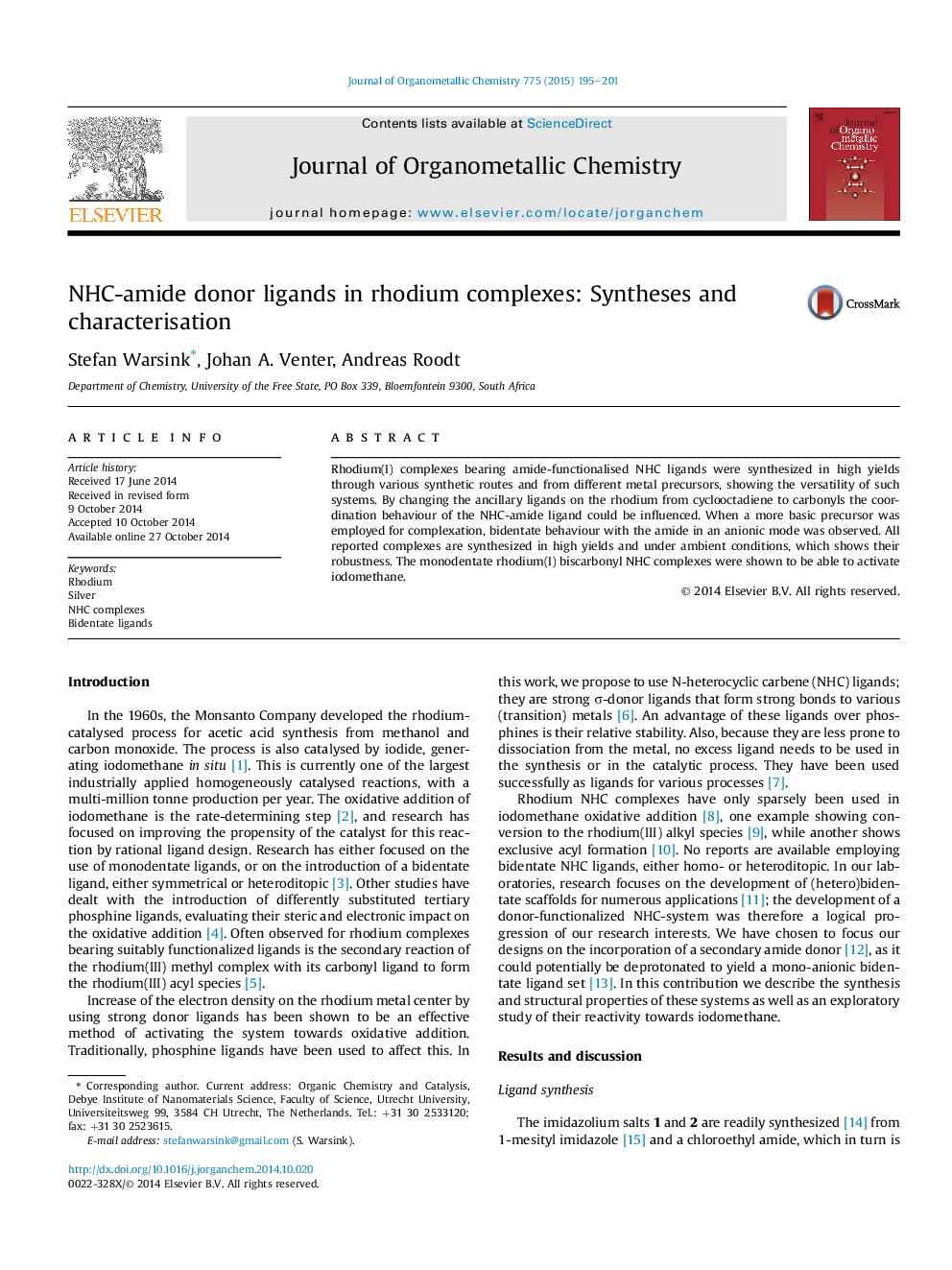| Article ID | Journal | Published Year | Pages | File Type |
|---|---|---|---|---|
| 1322212 | Journal of Organometallic Chemistry | 2015 | 7 Pages |
•A new NHC-amide ligand system was developed.•It shows stable, variable and cooperative coordination behaviour with rhodium.•The complexes are active in iodomethane oxidative addition.
Rhodium(I) complexes bearing amide-functionalised NHC ligands were synthesized in high yields through various synthetic routes and from different metal precursors, showing the versatility of such systems. By changing the ancillary ligands on the rhodium from cyclooctadiene to carbonyls the coordination behaviour of the NHC-amide ligand could be influenced. When a more basic precursor was employed for complexation, bidentate behaviour with the amide in an anionic mode was observed. All reported complexes are synthesized in high yields and under ambient conditions, which shows their robustness. The monodentate rhodium(I) biscarbonyl NHC complexes were shown to be able to activate iodomethane.
Graphical abstractRhodium(I) NHC-amide complexes were synthesized through different synthetic routes. By changing the ancillary ligands or metal precursor, the coordination behaviour of the NHC-amide could be influenced. Activity in iodomethane oxidative addition was observed, showing the viability of these complexes for methanol carbonylation.Figure optionsDownload full-size imageDownload as PowerPoint slide
